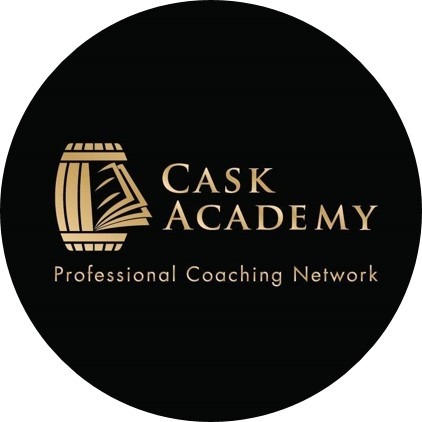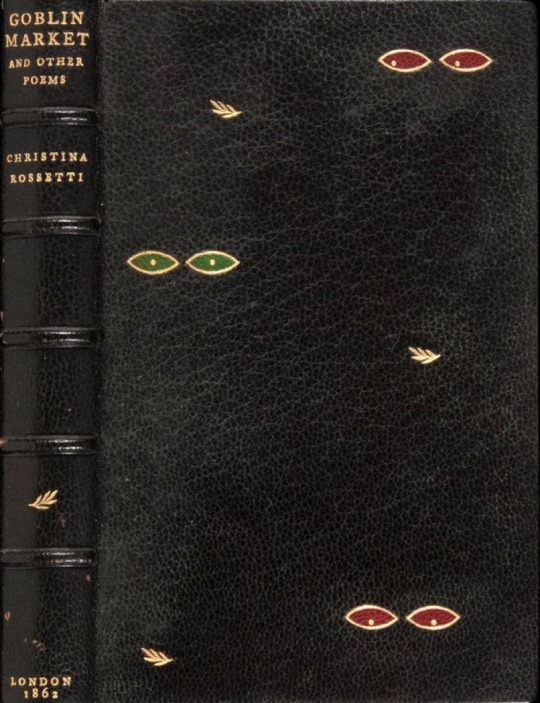#blog marketing
Explore tagged Tumblr posts
Text

When it comes to the promotion of this blog, Your Humble Narrator prefers the use of Search Engine Optimisation and ur-direct mail flyers (sent, depending on circumstances, through the United States Postal Service or the United Nations Postal Administration) targeting independent, "old school" motels and resorts for some reason or another as is beyond my own comprehension. Just in case any of you ask.
Especially considering that "spa'am" e-mail is rather costly and bound to be disruptive.
#hanna barbera#ad headcannon#insights#blog marketing#website marketing#direct mail marketing#hannabarberaforever
0 notes
Text



Amazon Echo Show 8 (3rd Gen, 2023 release) | With Spatial Audio, Smart Home Hub, and Alexa | Charcoal
Visit link for more info
Get your one from amazon
#gadgets#social media marketing#marketing#blog marketing#amazon#echo#Echo Show#Echo Show 8#technology#Tech#Alexa#Smart#smart home devices#smart home technology#Smart home hub
0 notes
Text
Top 10 Side Hustle Ideas
In today’s dynamic economy, finding effective ways to supplement your income can be a game-changer. Many people are exploring the best side hustle ideas to not only boost their earnings but also to gain financial freedom. Whether you’re looking to pay off debt or save for a big purchase, diversifying your income through creative side hustles can make a significant impact. At Wise Life University,…
#become a graphic designer#become a personal trainer#become a pet sitter#become a ride-sharing driver#become a tutor#become a VA#become a virtual assistant#become an online tutor#becoming a freelance writer#best freelance writing websites#best online tutoring jobs#best virtual assistant websites#blog branding#blog business#blog content#blog growth#blog ideas#blog income#blog management#blog marketing#blog marketing strategies#blog marketing tips#blog monetization#blog niche#blog promotion#blog resources#blog revenue#blog SEO#blog setup#blog side hustle
0 notes
Text
Digital Marketing: Depth Exploration and Engagement
Digital marketing is a dynamic field that involves using digital channels to reach and engage customers through strategic, data-driven approaches. By leveraging tools like SEO, content marketing, social media, and email campaigns, businesses can create personalized experiences that resonate with their audience. Effective digital marketing requires understanding customer journeys, utilizing analytics for continuous optimization, and fostering engagement through interactive and compelling content. This multifaceted approach not only enhances brand visibility but also builds lasting customer relationships, driving growth and loyalty in an increasingly digital world.
0 notes
Text



0 notes
Text
every time i see what the Duolingo owl is up to or whatever Arby's latest crazy crossover is i get war flashbacks to the Denny's tumblr circa 2012ish. we could have stopped this. we saw a fish evolving legs and kept shoving it back into the water and it kept coming back and now we're drowning in legged fish. we should have stomped it into paste.
#i got a message in 2014ish from someone who said they were on the dennys tumblr team#and they followed my blog specifically as one of the handful of “popular” blogs to get a handle on the posting style#i checked her blog and her bio said she was 20 at the time and interested in online marketing#i think about her a lot. there's a pretty good chance she's behind whatever the duolingo owl is up to now.#she said she waited until after the dennys tumblr “experiment” was done to contact me bc she legally couldn't b4 that
2K notes
·
View notes
Text
Blog marketing
Whatever your marketing needs be? Or something lacking? Blog marketing is how any brand can grab the spotlight.
0 notes
Text
7 blog về Marketing hay và đáng đọc nhất
Với mình, blog là một công cụ tuyệt vời giúp mình tiếp cận thông tin, kiến thức và các tips hữu ích về một vấn đề nào đó. Đặc biệt, mình rất thích theo dõi các blog kinh doanh và blog marketing bởi nó như một kho tàng tri thức khổng lồ, vừa cô đọng vừa thực tiễn giúp mình hiểu nhanh chóng về điều mình đang tìm kiếm. Không phải ai cũng có cơ hội tiếp xúc với những mentor thực thụ để được truyền đạt kinh nghiệm, nhưng blog ra đời, nó giúp mình có thể “diện kiến các tiền bối” mà không cần gặp mặt trực tiếp.
7 blog kinh doanh và marketing chất lượng bạn nên theo dõi
Mình theo dõi rất nhiều trang blog về kinh doanh và marketing, sau một thời gian, mình xin đúc kết một số trang mà bạn phải follow ngay và luôn. Dưới đây là 7 blog kinh doanh và blog marketing, theo mình nghĩ, là “chất” nhất được tổng hợp với đa dạng các chủ đề khác nhau (lưu ý thứ tự các trang blog chỉ mang ý nghĩa liệt kê, chứ không phải thứ hạng).
1. Thạch Phạm
Blog: thachpham.com
Chủ đề: WordPress, Digital Marketing

Hiện tại, blog của anh Thạch hoạt động như một website cung cấp các kiến thức sử dụng mã nguồn mở WordPress để tự làm website với nhiều nhu cầu khác nhau như webblog, tin tức, trang bán hàng, giới thiệu doanh nghiệp. Ngoài WordPress, ThachPham Blog cũng cung cấp các thông tin, các bài hướng dẫn liên quan đến lĩnh vực làm website như sử dụng máy chủ, giới thiệu các công cụ có ích, đánh giá dịch vụ host, SEO.
Mục tiêu chính của blog được thành lập ra là để chia sẻ những thông tin mà người sáng lập biết và muốn chia sẻ. Đồng thời blog luôn hoan nghênh và đón nhận các đóng góp của những thành viên để cung cấp bài viết đa dạng hơn.
2. Trần Tuấn Sang
Blog: trantuansang.com
Chủ đề: Kinh tế, Kinh doanh, Marketing, Kênh phân phối

Trần Tuấn Sang, có thể nói, là một cánh hữu gộc. Anh chịu ảnh hưởng nhiều nhất từ nhà kinh tế học lỗi lạc người Mỹ Milton Friedman, do đó các bài viết kinh tế của anh thường xoay quanh các chủ đề về kinh tế thị trường, chính phủ giới hạn, nền pháp quyền, các quyền tự do kinh doanh, tự do nhân công và tự do cá nhân.
Cá nhân mình nghĩ kinh doanh và kinh tế có một mối liên hệ mật thiết với nhau. Những chia sẻ về kinh doanh và marketing trên blog Trần Tuấn Sang rất đáng tham khảo và có giá trị thực tiễn cao, nên khá phù hợp với một người đam mê marketing thực chiến như mình.
Điều đặc biệt trên blog của Trần Tuấn Sang khiến mình đưa vào danh sách này là những bài viết của anh thường có một góc nhìn mới mẻ, cách tiếp cận rất lạ và nó làm nên sự độc đáo, thú vị trong mọi bài viết của anh.
3. Thế Khương – Kiếm Tiền Center
Blog: kiemtiencenter.com
Chủ đề: MMO, Digital Marketing, Startup, Kinh doanh, Affiliate

Về Thế Khương, sở trường của anh là Inbound Marketing và Personal Branding. Anh có kinh nghiệm về content marketing, free & paid traffic, UX/UI, có sở thích viết lách, nghiên cứu về business & thường xuyên du lịch. Năm 2019, anh sáng lập của Ktcity, một nền tảng học về kinh doanh, MMO, tiếp thị chất lượng nhất Việt Nam với hơn 50,000 thành viên đang tham gia học tập
Blog Kiemtiencenter của anh được khởi tạo từ năm 2013, bắt đầu bằng việc viết lách chia sẻ những thứ Thế Khương học được trong quá trình làm MMO & kỹ năng kinh doanh, digital marketing. Các nội dung trên blog đều nhắm đến tiêu chí cốt lõi: dễ hiểu, phù hợp xu hướng & mang tính chất thực tiễn.
Đây là kênh cực kì phù hợp cho những bạn trẻ đam mê việc tạo thu nhập tại nhà. Chỉ cần 1 chiếc máy tính, 1 vài kỹ năng, 1 tư duy tốt, bạn sẽ làm được mọi thứ - đó chính là thông điệp mà blog mang lại.
4. Jenny Lý Hà Thu
Blog: lyhathu.com
Chủ đề: Business coaching, Business management, Customer service, Marketing, Leadership, Company culture

Với một background xịn xò như vậy, những bài viết của Jenny Lý Hà Thu cũng chất lượng không kém. Bạn sẽ tìm thấy trong đó những chia sẻ giúp các doanh nghiệp phát triển vượt trội về dịch vụ khách hàng và đòn bẩy hệ thống. Chị Jenny là nữ chuyên gia quản trị tâm thế đầu tiên tại Việt Nam áp dụng Khoa học NLP (Neuro Linguistic Programming/ Lập trình Ngôn ngữ Nơ-ron) vào đào tạo doanh nghiệp. Nhờ đó nắm bắt thực trạng doanh nghiệp, biến những điều phức tạp trở nên đơn giản, giúp các chủ doanh nghiệp dễ dàng thực hiện từng bước nhỏ để mang đến thay đổi lớn.
5. Tomorrow Marketers
Blog: blog.tomorrowmarketers.org
Chủ đề: Brand marketing, Trade marketing, Data analysis, Content marketing, Digital marketing

Ngoài ra, bạn cũng có thể tìm thấy những video TM Talk với những chia sẻ hữu ích từ những người thành công trong nghề - những mentor thực sự trong marketing thực chiến.
6. Brands Vietnam
Blog: brandsvietnam.com
Chủ đề: Marketing, Bán hàng, Quản trị doanh nghiệp, Kinh tế, Thương mại, Quảng cáo, Sáng tạo & truyền thông, Digital marketing.

Marketing / Xây dựng thương hiệu
Bán hàng / Kinh doanh
Quản trị Doanh nghiệp
Kinh tế / Thương mại
Quảng cáo, Sáng tạo & Truyền thông
Thiết kế Thương hiệu
Truyền thông số (Digital Marketing)
Brands Vietnam ra đời với sứ mệnh mang lại một nền tảng sẻ chia tri thức, dữ liệu và kết nối trong ngành nhằm giúp marketers thăng tiến nghề nghiệp và xây dựng những thương hiệu thành công. Brands Vietnam tin vào một tầm nhìn đơn giản: với kiến thức và kỹ năng tốt hơn sẽ cho ra đời những thương hiệu và doanh nghiệp tốt hơn, từ đó tạo ra những giá trị lớn hơn cho người tiêu dùng và xã hội.
7. CASK
Blog: cask.vn/blog
Chủ đề: Brand, Trade marketing, Sale, Business, Technolgy, Operation.

Tại sao mình lại đưa CASK vào danh sách này? Vì đặc biệt blog của CASK có nhiều bài viết liên quan đến tài chính doanh nghiệp và marketing audit khá hay, do đó cực kì hữu ích cho những ai muốn sử dụng số liệu để phân tích và hoạch định chiến lược/kế hoạch.
Trên đây là những blog kinh doanh và blog marketing hay và chất lượng nhất theo đánh giá của mình. Thực ra, “anh tài hào kiệt” trên thế gian này còn rất nhiều, nhưng nội hàm bài viết này khó có thể liệt kê hết được. Nếu bạn biết những cái tên xuất chúng nào nhưng chưa được đề cập trong bài viết thì comment cho mọi người cùng biết nhé!
Xem thêm về nội dung tiềm năng ngành Marketing trong 2023
0 notes
Text

wizard husbands go to the farmers market
#wizard#illustration#wizardcore#illustrators on tumblr#digital art#lgbtq#gay#artists on tumblr#artwork#drawing#theartofmadeline#im not super happy with how this came out BUT#i had the concept and i did it#so that makes it good#ANYWAYS they are gay and at the wizard market !!!#every gay couple has one person who cant stop buying things#and one person who has to hold all the shit they buy#eyes off of the red wizards big naturals !!#wizard posting#wizard blogging
8K notes
·
View notes
Text

City of London: Leadenhall Market (by David)
2K notes
·
View notes
Text

THE GOBLIN MARKET AND OTHER POEMS by Christina Rossetti (London, [1862]) Art binding.
#beautiful books#book blog#books books books#book cover#books#vintage books#book design#art binding#goblin market#christina rossetti
661 notes
·
View notes
Text

















Last week's photos 🥰
#personal#I have many more from today too at more christmas markets and pubs but they don't fit in one post 😵💫#I love how festive the town is being!!#there is a ton of monasteries and convents here and they set up the markets inside and the nuns make marzipan and pastries to sell#it's really beautiful I'm so happy we moved here 😭 everyday I find something new to love#nipuni photos#nipuni blogs
251 notes
·
View notes
Text

Long live the mass market paperback 🖤
#godzilla reads#mass market paperbacks#bookstack#book pile#paperback books#book blog#book spines#books#bookworm#booklover
103 notes
·
View notes